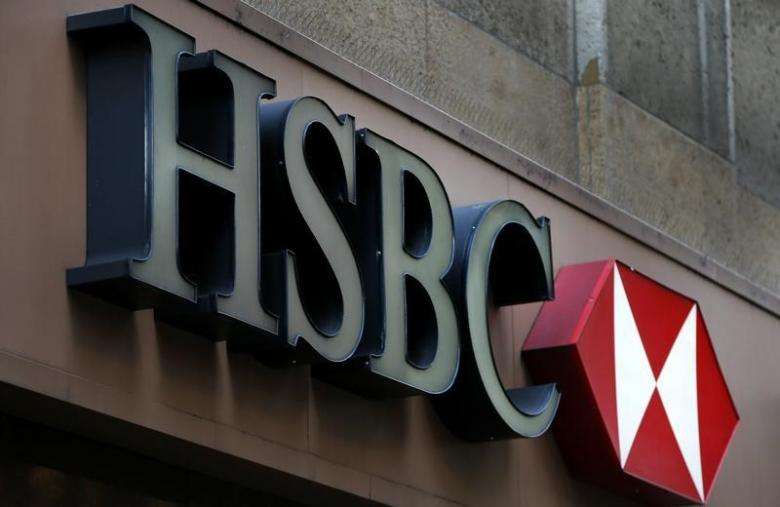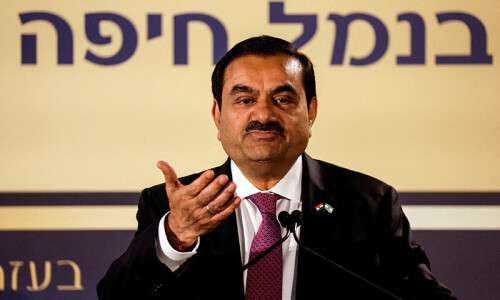HSBC Holdings, one of the world’s largest and most influential banking institutions, has announced that it is commencing the search for its next chairman. The bank’s board has hired headhunters to manage this crucial leadership transition, signaling that the end of the current chairman, Mark Tucker’s tenure, is approaching. Tucker, who assumed the role in 2017, is set to step down by 2026, marking a pivotal moment in HSBC’s leadership and future direction.
Leadership Transition at HSBC: Key Details
Mark Tucker’s Legacy and Departure Timeline
Mark Tucker, who took over the chairmanship of HSBC in March 2017, will end his tenure by 2026. Tucker’s appointment was historic, as he became the first outsider to ever hold this esteemed position at HSBC, breaking a long-standing tradition of selecting candidates from within the bank’s ranks. His previous experience at Hong Kong-based insurer AIA brought a fresh perspective to the banking giant during a time of significant strategic changes, especially regarding its growing focus on Asia.
Under Tucker’s leadership, HSBC has made considerable strides in refining its global strategy. A key part of this strategy was a stronger emphasis on its Asian operations, which have become the main driver of revenue growth. As the bank prepares for his eventual departure, the focus now shifts toward finding a successor who can continue guiding HSBC through both external challenges and internal transformations.
Headhunters Appointed for the Chairman Search
In line with this upcoming leadership change, HSBC’s board has engaged recruitment firms, including MWM Consulting, to conduct a global search for the next chairman. This move signifies the importance HSBC places on a comprehensive and transparent selection process to find a successor who can uphold the bank’s values while strategically navigating its future.
While the search will certainly include external candidates from outside the organization, HSBC’s board is also considering its own non-executive directors, who might bring valuable institutional knowledge to the role. These potential candidates could offer continuity during a period of transition, ensuring the bank’s long-term strategy remains intact.
Strategic Focus on Asia
HSBC’s commitment to Asia, particularly China and Southeast Asia, has been central to its strategy over the last decade. The bank derives a significant portion of its revenues from the region, and the next chairman will need to maintain a delicate balance between navigating global macroeconomic challenges, managing geopolitical tensions, and ensuring the bank’s growth within these crucial markets.
With the banking sector facing numerous challenges, including rising interest rates, regulatory scrutiny, and economic uncertainty, HSBC’s chairman will need to demonstrate strong leadership capabilities. The successor will be tasked with continuing to align the bank’s operations with shifting market dynamics while also bolstering its global presence, especially in its key Asian markets.
Geopolitical Tensions and Global Economic Challenges
The global landscape for financial institutions is becoming increasingly complex, especially as geopolitical tensions rise in regions such as Asia and Europe. These tensions, combined with macroeconomic challenges such as inflation, supply chain disruptions, and fluctuating commodity prices, have added layers of complexity to HSBC’s strategy.
HSBC’s chairman will need to play a crucial role in guiding the bank through these turbulent times. They will have to manage the delicate balance between upholding HSBC’s historic ties to London while recognizing the growing importance of its operations in Asia, where the bank’s future growth lies.
HSBC’s Path Forward: Navigating Leadership and Strategy
The Role of the Chairman in HSBC’s Future
As the bank sets its sights on selecting its next chairman, there is much to consider beyond just the individual’s professional qualifications. The chairman will play a critical role in ensuring that HSBC remains focused on its long-term objectives. These include maintaining a leadership position in Asia, building stronger customer relationships, and enhancing its financial services offerings in response to evolving client needs.
Additionally, the new chairman will need to ensure that the bank navigates the challenges of a post-pandemic world, which includes addressing the growing regulatory demands, ensuring compliance with international standards, and effectively responding to digital banking trends.
Focus on Innovation and Technology
Another key aspect of HSBC’s future strategy will be its continued investment in technological innovation. With advancements in digital banking, blockchain, and artificial intelligence, the new chairman will have to ensure that HSBC remains at the forefront of these innovations. Technology is increasingly reshaping the banking industry, and HSBC’s future growth will depend on its ability to adapt and leverage these developments.
Sustainability and ESG Initiatives
As the world becomes more focused on sustainability, the next chairman will also need to prioritize environmental, social, and governance (ESG) issues. HSBC has already begun making strides in this direction, with a commitment to sustainable finance and investments in renewable energy. The next chairman will need to reinforce these initiatives and ensure that HSBC is not only financially strong but also a responsible corporate citizen.
FAQs: Leadership Transition at HSBC
1. Why is HSBC searching for a new chairman?
HSBC’s current chairman, Mark Tucker, is set to step down by 2026, and the bank is beginning the search for his successor to ensure a smooth leadership transition.
2. Who is managing the search for HSBC’s new chairman?
HSBC has appointed recruitment firm MWM Consulting to assist in the process of selecting the bank’s next chairman.
3. What challenges will the new chairman face?
The new chairman will need to navigate global economic uncertainties, geopolitical tensions, and ensure HSBC’s continued growth, particularly in Asia, its most profitable region.
4. Why was Mark Tucker’s appointment significant?
Mark Tucker was the first outsider to be appointed as HSBC’s chairman, breaking a long-standing tradition of selecting candidates from within the bank.
5. What is HSBC’s strategic focus going forward?
HSBC’s strategic focus remains on Asia, where it generates most of its revenue. The bank will continue to focus on innovation, technology, and sustainability to drive future growth.
Conclusion: HSBC’s Leadership Transition
HSBC’s search for a new chairman represents a pivotal moment in the bank’s future. With a focus on Asia and an increasing need to adapt to a rapidly changing global environment, the new chairman will play a critical role in shaping HSBC’s strategy for years to come. The recruitment process is already underway, and the selection of the next leader will be watched closely as HSBC continues to refine its approach to global banking
ALSO READ:


